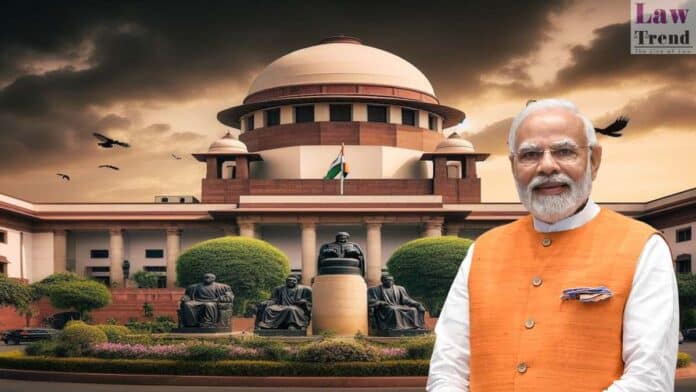The Supreme Court on Monday came down sharply on Indore-based cartoonist Hemant Malviya for his “inflammatory and immature” conduct over a controversial cartoon and social media post targeting Prime Minister Narendra Modi and the Rashtriya Swayamsevak Sangh (RSS).
A bench comprising Justice Sudhanshu Dhulia and Justice Aravind Kumar was hearing Malviya’s special leave petition challenging the Madhya Pradesh High Court’s rejection of his anticipatory bail plea. The cartoonist faces criminal charges over a Facebook post from May 2025, which revived a cartoon originally drawn in 2021 questioning the safety of Covid vaccines, now seen in the context of the government’s caste census decision.
Court Criticism and Counsel’s Response
During Monday’s hearing, the Supreme Court took a grim view of Malviya’s decision to repost the cartoon with additional comments, calling it socially provocative. Advocate Vrinda Grover, representing Malviya, acknowledged that the cartoon and accompanying remarks may have been “unpalatable” or in “poor taste” but argued that they were not criminal acts.
Grover assured the court that Malviya, who is over 50 years old, would delete the post immediately and clarified that he had not authored the objectionable comments, only the visual. “The words are not mine, only the visual is mine,” she submitted.
Expressing disappointment, Justice Dhulia remarked, “Still no maturity. We agree that it is inflammatory.” The bench asked Malviya’s counsel whether the petitioner was willing to delete the post, to which Grover confirmed immediate compliance.
The state, represented by Additional Solicitor General KM Nataraj, opposed granting protection, asserting that the post had the potential to disturb social harmony and trigger unrest. “This is causing social disharmony and breakdown of law and order,” the ASG contended.
The court posted the matter for further hearing on Tuesday.
Background of the Case
The controversy stems from Malviya’s cartoon published on January 6, 2021, satirizing claims that certain vaccines were “as safe as water.” In May 2025, an unknown social media user reposted the image with added commentary critical of the government’s caste census plans. Malviya reshared this post, which led to an FIR being filed against him on May 21, 2025.
The complaint, lodged by a member identifying with the RSS and Hindu community, alleged that the post insulted the RSS, provoked religious sentiments, and risked inciting violence. Malviya was booked under multiple sections of the Bharatiya Nyaya Sanhita (BNSS) and Section 67A of the Information Technology Act, 2000.
Lower Court Rulings and Allegations
Malviya’s anticipatory bail application was first dismissed by an Indore sessions court on May 24, 2025. The Madhya Pradesh High Court subsequently rejected his plea on July 3, ruling that the cartoonist had crossed the limits of free expression. The High Court observed that custodial interrogation was justified, describing the content as “deliberate and malicious” and likely to disturb public order.
The court specifically cited the cartoon’s depiction of an RSS figure in uniform, bent over with shorts pulled down, receiving an injection from a caricature of Prime Minister Modi. It also referenced allegedly derogatory remarks involving Lord Shiva that were circulated alongside the image.
Arguments Before the Supreme Court
In his plea before the apex court, Malviya maintains that the charges are an overreach, aimed at punishing him for dissent. He contends that the FIR does not disclose any offence warranting custodial interrogation, especially when the post involves artistic expression and the resharing of content already in the public domain.
Malviya further argues that safeguards under Section 41-A CrPC, Section 35 BNSS, and the guidelines laid down in Arnesh Kumar v. State of Bihar should apply, as the alleged offences carry a maximum punishment below seven years.
With the Supreme Court set to continue hearing the matter tomorrow, the case has sparked wider debate on the limits of free speech, artistic expression, and the state’s response to social media content in India’s increasingly polarised public discourse.




